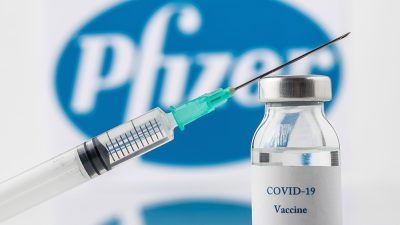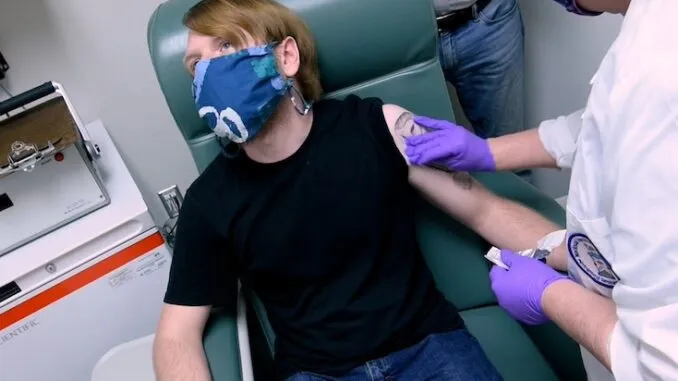A Vaccine May Not Be the “Magical Cure” Everyone Anticipates
by Charles Hugh Smith, Of Two Minds:

Few appear willing to follow the probabilities of a future in which a vaccine cannot possibly be the “magic cure” everyone wants.
Let’s attempt the impossible and set aside all preconceptions we might have about a vaccine for Covid-19, and think it through somewhat dispassionately. Let’s start by stipulating that dispassionate analysis is as rare as anti-matter, as everyone’s barely-cloaked self-interest and ideological biases demand an indignant, rabid response to any challenges to the one true faith, i.e. whatever they believe.
Speaking of self-interest, we would blind not to notice the rapacious interest of Big Pharma in reaping billions of dollars in profits from a vaccine or vaccines. What could be better for obscene profits than a vaccine everyone must have to participate in the conventional economy, a vaccine the federal government will let the “owner” price at “market”?
“Owner” is in quotes because the federal government is funding much of the research expenses yet the Big Pharma corporations retain ownership of the results–such a deal for Big Pharma! The gummit puts up the money but Big Pharma gets 100% “ownership” and the right to price their vaccine at “market,” which is whatever the government is willing to pay for the vaccine it funded.
We would also be remiss not to notice that Big Pharma’s track record of releasing medications with glossed-over side-effects and poor efficacy is not exactly spotless. Horrendously costly meds have been passed out like candy with claims of efficacy that have later been shown to be unsubstantiated and side-effects that have been under-reported or otherwise marginalized.
We’ve all heard the comedic fast-talking voice talent listing the horrific side-effects in a blur during Big Pharma’s ceaseless adverts–adverts that were illegal not that long ago. Side effects include hallucinations, dizziness, heart failure, seizures, warts, temporary blindness, compulsive spending sprees, fear of people in white coats, obsessions with travel to Mars, imaginary super-powers, itchiness in the cranial cavity and shortness of breath when eating ice cream. This parody is not far off the actual listings of side-effects.
Yes, it was illegal for drug companies to advertise directly to the public not so long ago. That impediment to additional billions in profits disappeared when the bribes, oops I mean campaign contributions became large enough for politicos to sell the public interest down the river.
Thus a bit of cautious skepticism about Big Pharma’s claims and pricing is in order. The list of people who are now dead after believing Big Pharma’s claims that its opioids were “safe” and “non-addictive” is tragically long.
Then there’s the pesky issue of reliability: can any corona-virus vaccine achieve 99% effectiveness? And for how long? There is some science-based skepticism that a corona-virus vaccine that works for virtually everyone and is effective for a year or longer is even achievable.
If the reliability/effectiveness is significantly less than 99%, that introduces a Russian-Roulette type risk calculus in those getting the vaccine. What if I’m one of the unlucky folks who get the virus despite getting the vaccine?
If the duration of efficacy is variable–maybe it works for a year for most people but considerably less for a significant percentage of those who get the vaccine–then that also introduces the same risk assessment: how can I know if the vaccine will protect me for a full year?
Since Nature often tracks a Pareto Distribution–the 80/20 rule–let’s make some preliminary estimates based on that. Let’s say that the vaccine is 80% effective, and 80% of the populace agrees to get the vaccine. (Let’s set aside the reasons why 20% of the populace might decide not to get the vaccine regardless of its purported effectiveness or the penalties placed on those who refuse.)
The U.S. population is around 330 million, and let’s estimate that institutionalized residents might not be given a choice about getting the vaccine–ot if there are recognized risks, some at-risk institutionalized residents might be refused the vaccine as a matter of caution.
So perhaps 10 million people won’t have a choice in the matter. That leaves 320 million with a choice. If 20% refuse for various reasons, that’s 64 million who will be unvaccinated and 256 million who choose to get the vaccine.
If the vaccine is effective in 80% of these 256 million people, then 205 million will receive the benefits of the vaccine and 51 million might come down with the virus (perhaps in milder cases, perhaps not–that will have to be determined by large-scale double-blind studies).
Again following the Pareto Distribution, let’s estimate that 20% of the 256 million people who get the vaccine will choose to avoid higher-risk settings such as cruises, concerts, etc., even though they’ve been vaccinated, because the uncertainty increases their caution. This would be entirely understandable and prudent in at-risk populations such as those older than 60, those with pre-existing conditions, etc.
As I explained in Consumer Spending Will Not Rebound–Here’s Why (May 18, 2020), this older, at higher-risk cohort happens to collect the lion’s share of household income and own the lion’s share of household wealth. Their decisions to limit participation in riskier activities have an outsized economic impact because they collect almost half the income and own about 85% of all household wealth.
Following the 80/20 rule, we end up with 64 million unvaccinated and 51 million vaccinated who choose to avoid higher-risk activities. That’s 115 million people who will not resume their pre-pandemic lifestyles either because they may be barred from activities because they’re not vaccinated or because their at-risk profile and the inherent uncertainties of the vaccine cause them to avoid higher-risk activities.
Those assuming that requiring vaccination to board a airliner will boost vaccination to nearly 100% could be underestimating the strength of the motivations of those who decide not to get the vaccine. It would also be unwarranted to assume that everyone who chooses not to get the vaccine is a rabid anti-vaxxer.



